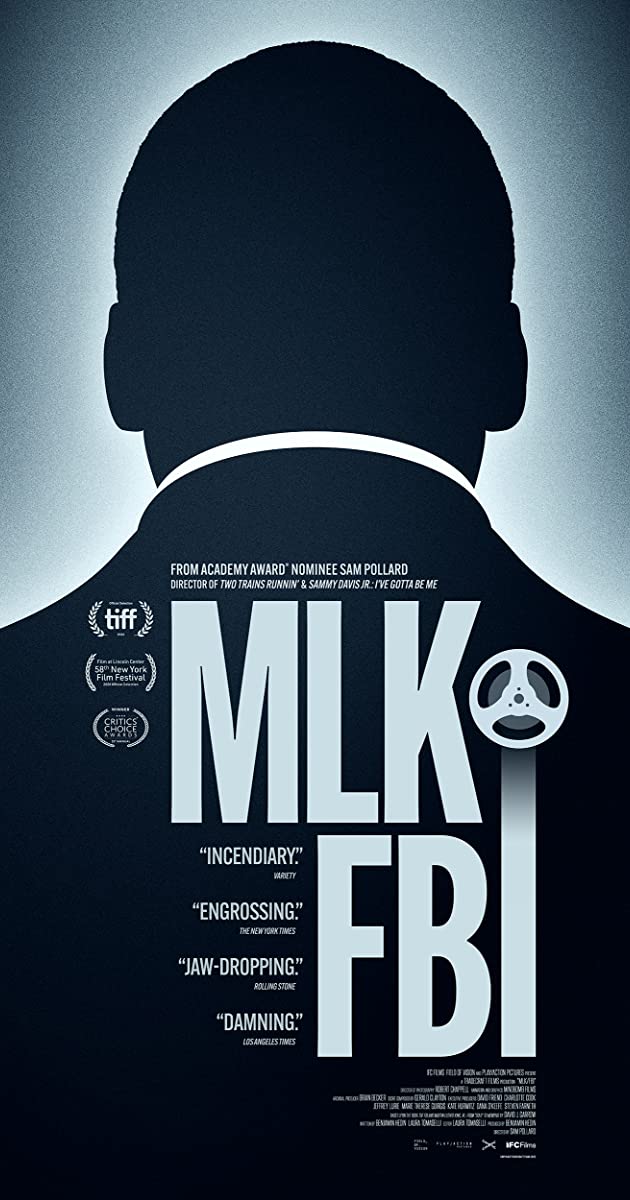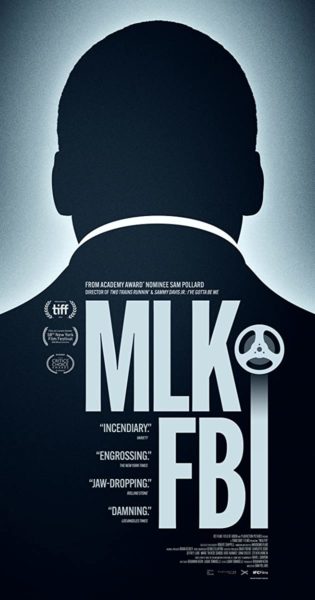

The recently released documentary “MLK/FBI” opens on a crowd amassed in front of the Lincoln Memorial, waiting excitedly as “the moral leader of our nation” is announced, and Martin Luther King Jr. emerges on the steps. King’s legacy is introduced over footage of historic moments from his life, deceiving the viewer into thinking that they are settling in for a historical documentary highlighting the feats of King during the civil rights movement, released in honor of Martin Luther King Jr. Day.
Rather than telling his life story through the typical lens of a historic icon who was honest and forthcoming, the documentary intends to portray him through the eyes of the FBI, who thought of him as dangerous and secretive. They feared how he had enough power, charisma and influence to bring real change to American society.
Based on the 1981 book “The FBI and Martin Luther King Jr.” by David Garrow, the documentary premiered at the 2020 Toronto International Film Festival and was released in theaters and on demand on Jan. 15. The movie was directed by Sam Pollard, who has won four Emmy awards for his past works, many of which also focus on the civil rights movement. Producer Benjamin Hedin has worked with Pollard in the past on “Two Trains Runnin’,” which is based on the “Freedom Summer” of 1964 in Mississippi.
The film has been well-received by critics, earning a 99% score on Rotten Tomatoes. Rather than being a reenactment of events, it uses footage from interviews, speeches and King’s personal life to achieve authenticity.
“[The FBI] feared how [King] had enough power, charisma and influence to bring real change”
King’s cheery image is juxtaposed against the sinister one of the FBI, presented as a mysterious organization. This connotation is upheld through the use of iconic symbols of espionage in pop culture — partially-censored documents, wiretapping and even clips from other movies. Scenes from films “The FBI Story,” “Walk a Crooked Mile” and “Big Jim McLain” make an appearance, emphasizing the portrayal of the FBI in modern day media.
The movie presents the story in a chronological order and switches between King’s professional life to the FBI’s response. However, while the movie discusses King’s feats at length, this time could have been used to further demonstrate the conflict between FBI Director J. Edgar Hoover and King. For instance, when the movie illustrates the Vietnam War tension, rather than detailing how King’s view on the war develops, the time would be better spent showing why it was received poorly from the president and FBI.
Despite this, the movie clearly developed its complex narrative of the FBI through contrasting the FBI’s findings and King’s professional achievements. When the FBI’s investigation of King’s marriage troubles is narrated, footage of King and his family peacefully enjoying a meal together emphasizes the tension between the FBI’s efforts to mar King’s perfect public image.
Although it has a different focus than most historical documentaries, “MLK/FBI” still retains an informative tone by using various narrations from experts and people related to the conflict, such as a retired FBI special agent and King’s speechwriter and adviser. The filmmakers do a good job selecting a variety of people related to the story, adding to the overall message of showing all sides of the conflict between King and the FBI.
The main conflict of the movie is reached when King is assassinated, as he is no longer a direct threat to the federal government. Afterwards, the impact of the interviews is more noticeable. A few lines of text on the screen inform the viewer about additional FBI tapes on King that will be released in 2027. Each of the experts gives their opinion on these tapes — what should be done with them, whether they should be released and what their impact will be. The diversity of answers fits the theme of the movie, that there is not one right way to feel about the events described in “MLK/FBI,” but like any other person, King was a complex person, not inherently good or evil.
What the film makes up for with an intriguing plot it lacks in emotional appeal. The documentary primarily focuses on showing a sequence of facts with little focus on showing the emotional impact of the conflict. There are many parts of the movie where suspense would make the events described seem more dramatic, such as when the FBI’s findings on King are revealed.
Because of the way this movie was able to present a unique angle in an impactful way, I would rate this movie 4.5 out of 5 stars. It loses half a star due to the excessive detail about some events and lack of emotion shown in others but is overall a worthwhile watch that will give the viewer a deeper, more nuanced understanding of Martin Luther King Jr. as a human being.



